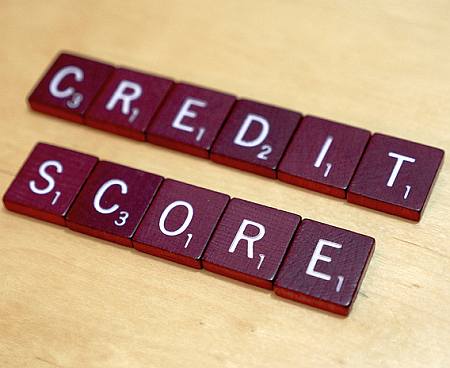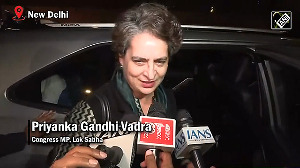
Middle class Indians have grown up with the belief that living on credit is essentially a bad thing. You are in trouble if you think the same, cautions Rajiv Raj
The internet is rife with articles about how important it is to maintain your CIBIL score of above 750 (out of 900) in order to improve your chances of a speedy loan approval. However, more often than not, information about what you should do to maintain a good CIBIL score is confusing for a consumer. As a result, most people go about with their business as usual, unaware about the fact that they may actually be hurting their credit score in the process.
In the world that we live in today, it is extremely important to maintain a good CIBIL score. The banking regulator, RBI, has made it mandatory for all lenders to make their credit approval decisions taking into consideration the CIBIL report and score of individuals. However, as we mentioned earlier, there is a lot of misinformation about how to maintain that perfect score so that you do not get any unpleasant surprises when you apply for credit.
So here are some common myths that we will attempt to bust so that you can make prudent financial decisions.
Myth #1: Checking your own CIBIL score will have a negative impact on it
You have been told that every time an inquiry is made for your CIBIL report and CIBIL score, you get a negative marking, so you avoid checking your own score and keep wondering if you are doing things right.
The truth
The truth is quite contrary to this myth. For checking your CIBIL report at least once annually is a good financial practice.
When you check your own CIBIL score it is considered a “soft inquiry” and does not impact your score. However, if lenders or credit card issuers request CIBIL to give them access to the same (when you apply for a loan or a credit card), it is considered as a “hard inquiry” as it gets recorded in the Enquiry Section on your report.
Loan applications with various banks at one point of time will lead to hard inquiries in quick succession demonstrating ‘credit hungry behaviour’ which will impact your score negatively. However, pulling out your own CIBIL report online once a year, is akin to performing health check. Be assured, that it does not hurt your score a bit!
Myth #2: Closing a credit card does not hurt your CIBIL score
Consider this. You own three cards.
The oldest one among them has no outstanding balance since you have had a perfect history of having cleared your monthly outstanding well within the payment cycle. Since you are diligent and aware of how your credit behaviour may impact your CIBIL score, you decide to be proactive and close your credit card.
What you do not know is that you are doing yourself more harm than good.
The truth
If you have maintained a good payment history on your old card and have a zero outstanding balance on it, do not bother closing it. There are two good reasons for this.
Firstly, you must consider the fact that one of the things that impacts your CIBIL score is the length of your credit. So if you have held an old credit card and have displayed good credit behaviour on it for years together, holding on to it will show that you are responsible with your credit.
The other reason to keep your old credit card is that it keeps your utilisation rate low, which is another factor that influences your CIBIL score.
Consider an example.
You have three credit cards with a limit of Rs 1 lakh each and spend an average of Rs 80,000 each month. With three credit cards your total limit amounts to Rs 3 lakh.
When you spend Rs 80,000 monthly, your utilisation rate is roughly 27 per cent (80,000 divided by 3 lakh and then multiplied by 100).
If you close one of the cards, your total limit comes down to Rs 2 lakh and your utilisation rate shoots up to 40 per cent (80,000 divided by 2 lakh and then multiplied by 100).. Thus, as you can see holding on to a credit card even if it is not in use makes sense rather than closing it.
Myth #3: No credit equals to a good CIBIL score
Middle class Indians have grown up with the belief that living on credit is essentially a bad thing. Till date, there are many who avoid credit cards or loans like the plague and think that their CIBIL score will be perfect as they have no use for credit!
The truth
Such people are as much in the line of fire as those who over-leverage themselves and hurt their CIBIL score.
The ones who do not borrow do not have a credit history and hence, no credit bureau can assign them a score. Such people will find it difficult to get a loan when they need one. The trick therefore, is to use credit responsibly.
Taking a loan or using a credit card is a good thing as long as you are making timely repayments. This is considered to be good financial behaviour and puts you in good stead with CIBIL.
It also ensures that your CIBIL score remains well above 750.
Myth #4: There is just one credit bureau that maintains your records
Even those who know about credit score and credit report think that there is only CIBIL that is keeping their financial records.
The truth
So for most of you this is news! There are three other credit bureaus in India apart from CIBIL. These are Experian Credit Information Co. of India Pvt. Ltd, Equifax Credit Information Services Pvt. Ltd and CRIF High Mark Credit Information Services Pvt. Ltd.
What this means is that when you want to take a loan or a credit card, the lender may access your credit score and credit report from any of these institutions along with CIBIL. Each of these bureaus has different scoring models; so your score can vary from one bureau to the other. The good news however is that these credit scores are highly correlated.
So if your credit behaviour is considered good by CIBIL, it will be considered good by the others as well!
Conclusion
Things such as a low credit utilisation rate, responsible use of credit and maintaining an optimum number of active loans or credit cards have a good bearing on your CIBIL score. As long as you are doing that, you will have little reason to worry when you are in real need for credit.
Photograph: Simon Cunningham/Wikimedia Commons
The author is a credit expert with 10 years of experience in personal finance and consumer banking industry and another 7 years in credit bureau sector. Rajiv was instrumental in setting up India's first credit bureau, Credit Information Bureau (India) Limited (CIBIL). He has also worked with Citibank, Canara Bank, HDFC Bank, IDBI Bank and Experian in various capacities.











